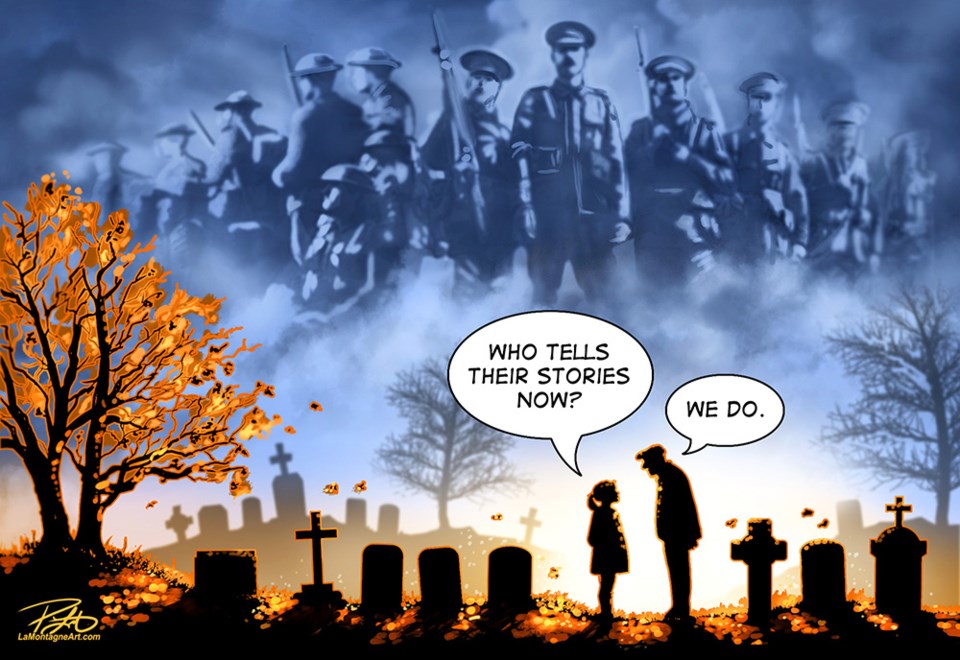Poppies have literally been popping up on the lapels of qathet region residents in the days and weeks leading up to Remembrance Day. The gesture is a way to remember and reflect on who is responsible for the freedom they enjoy every day.
Perhaps because of the devastation of World War II and the horror of the atomic bomb, a third world war has been averted over the last half 75-plus years. But many people believe the world can never be safe until the weapons that cause the horror are eliminated.
Keeping memories alive and continuing to honour those who served their countries are two of the best ways to avoid war in the future. As the clock strikes 11 am on the 11th day of the 11th month, people should pause in their busy lives to reflect on the people who sacrificed their lives to afford us the freedom we know today.
People should also commit to doing what they can to prevent the horrors from happening again. That is only by remembering that nations can continue to work for peace instead of war.
The hope is to carry the desire for peace forward and eliminate war as a way to solve conflict and injustice in the world, even as conflicts continue in Ukraine and the Middle East.
Throughout the 1900s and 24 years into this millennium, Canadian men and women have made sacrifices for their families and compatriots by joining the armed forces and protecting our country.
In addition to previous and current peacekeeping missions in many areas around the world, Canadians were present during World War I, also known as the Great War, World War II, the Korean War and more recently in Afghanistan from 2002 to 2011.
Thankfully, for those at home, those battles were fought overseas. The vast majority of Canadians have only witnessed war through the stories that ensue, whether in books, on movie screens, or recounted by those who experienced the real thing and lived to tell about it.
After more than four years of war, at 11 am on November 11, 1918, World War I, came to an end. Nearly 61,000 soldiers from Canada paid for the freedom of others with their lives; another 172,000 returned home with injuries. 12 young men from our small community on the Sunshine Coast left family and friends to fight overseas and never returned.
In August of 1945, six years of war came to an end when Japan surrendered to Allied Forces. World War II resulted in the deaths of more than 60 million people worldwide, including military personnel and civilians killed during the war or by the disease and famine that followed.
Of the 43,600 Canadians killed during battles, invasions or training, 54 were soldiers from the area between Lund and Saltery Bay, either since birth or after moving to the community for work or family reasons. More than 1,000 men and women from the area served in one military capacity or another in WWI or WWII.
During the Korean War in the 1950s, 516 Canadian soldiers paid the ultimate price and lost their lives, and more than 1,500 were wounded. 158 were killed in Afghanistan, in addition to more than 1,800 who returned home injured. Since 1948, more than a hundred Canadian peacekeepers have been killed.
The sacrifice of those who didn’t come home while serving their country is overwhelming to think about, but the others who did return carried/carry a burden for the rest of their lives, sparing us fortunate enough to live where and how we do from experiencing the horrors of war firsthand.
We all share a responsibility to pass down history. Our children will be taught, so they can teach their children, and a lesson can be learned.
The annual Remembrance Day ceremony at Dwight Hall and Veteran's Memorial Park in Townsite starts at 10 am on Monday, November 11.
Lest we forget.
Join the Peak's email list for the top headlines right in your inbox Monday to Friday.



